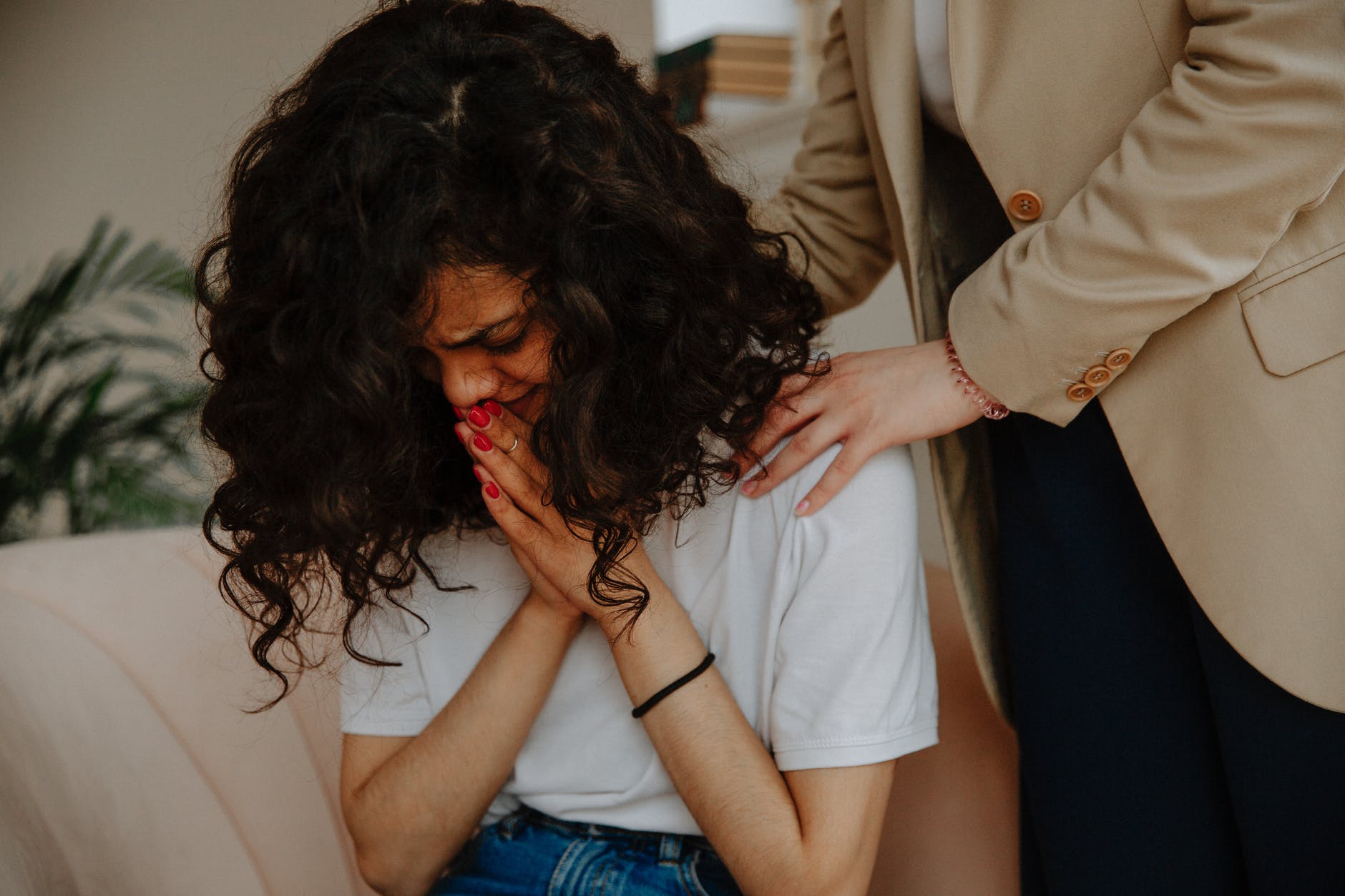Grief is a normal, sorrowful reaction to losing someone (or something) you love. Grieving practices like funeral rites are important because they allow those left behind to process and handle their grief, allow people from different places to come together to support the grieving and commemorate the life of a person who has died, and form tighter bonds.
Grieving during a pandemic, however, presents a new set of challenges. With social isolation policies in place, many family members have not been able to visit or take care of loved ones suffering from the disease, or hold a proper funeral when they pass away.

If you have lost a loved one during the pandemic, know that it is normal to feel uncertain, unprepared, frustrated, or even angry at yourself. Being away from your normal support networks might also make you feel isolated and lost. But there are some things you can do to help cope with grief over the loss of a loved one during this difficult time.
- “Remember that grief is a natural and ongoing response to loss,” assures Dr. Lillian Gui, a psychologist and former Chairwoman of the Counseling Division of the Psychological Association of the Philippines. “It is a healthy process of feeling comforted and coming to terms with the loss,” she adds. Because times today are more scary and uncertain, you might feel as if your sadness is more pronounced. But this does not mean that you should put your feelings off for another time; do not be afraid of any emotion you experience.
- Don’t get caught up in guilt. When you are robbed of the opportunity to properly say good-bye to someone, you might start ruminating about whether your loved one was in pain before dying or feel guilt that you did not say or do something in time. You might also experience survivor guilt, which makes you feel that you should not enjoy things yourself. Know that it’s okay to experience positive feelings. “No one has the right to tell you how to feel,” Dr. Gui reminds. “There is no right or wrong emotion, so you are entitled to your own feelings.”
- Make the most of virtual support. The in-person support systems you would normally turn to after the death of a loved one, like the extended family members who visit you or the friend who hugs you when you cry, are no longer available now. But you can still find comfort by staying digitally connected with others. While “virtual memorial services” fall short of actual graveside mourning surrounded by friends and family, they can still provide an outlet for collective grief.
- Understand that a funeral during COVID-19 will be different. Acknowledge that there will be things you cannot control, such as the ban on social gatherings. Instead of feeling bad about it, focus on the details that you can control, such as enquiring if it would be possible to do a live stream or a recording of the service, arranging a digital guest book, or sharing messages from those not present.
- Create a space for sharing memories. Sharing good memories about the deceased is helpful to bereaved people, so figure out ways to tell the story of the person who died. For example, you can create a Facebook group where people can share their stories, or organize a video chat conference for the same purpose.
- Plan something special for when you and your loved ones can mourn together again. Think of the socially-distanced mourning you are able to do now as temporary measures. Be reassured that there will be a time when you can hold a more formal, in-person memorial. Planning a future service can even function as part of the grieving process.
- Say good-bye in your own way. In your own time, find a quiet place where you can be alone, and say what you want to say to the other person as if they were still there.
- Create rituals to memorialize your loved one. “Healthy grief is about finding ways to remember loved ones and adjust to life without them,” says Dr. Gui. So go ahead and engage in activities that make you feel attached to the deceased or fill you with fond memories of the person. This could be cooking a favorite recipe that you associate with them, making a playlist of songs that you both enjoyed, or writing a letter to them every week at the same time.
- Be prepared. There will be events and moments in the future that will trigger your memories and sadness. When this happens, give yourself permission to express your grief in ways that work for you. To help sort through your feelings, Dr. Gui suggests journaling, using the following prompts:
- What did the person mean to you?
- What did you learn from him or her?
- What good has come from this difficult experience?
- What have you learned about yourself, other people, or life?
- Are there things you appreciate more?
- Who are the people who have been there for you? Were they the people you expected? What have you learned about them?
- In what ways have you grown or matured based on this experience?
- Understand that you will heal. Rest assured that in time you will feel better and move forward in new and different ways.
The death of a loved one can be very stressful and traumatic, especially if regular mourning rituals are unavailable due to the current pandemic. Be gentle and patient with yourself as you go through the grieving process. “It’s okay to feel grief for days, weeks, or even longer,” says Dr. Gui. “Every person’s situation is different.” Slowly pace yourself and reach out for safe and helpful relationships, even if it’s just through virtual means. Lastly, don’t bypass the pain by bottling up your emotions or rejecting your feelings; this might cause you physical problems or lead into depression.
And if you really cannot contain or handle the pain anymore, seek professional help. MindNation psychologists are available for teletherapy sessions 24/7. Book a session now thru bit.ly/mn-chat.
—
Written by Jac of MindNation

